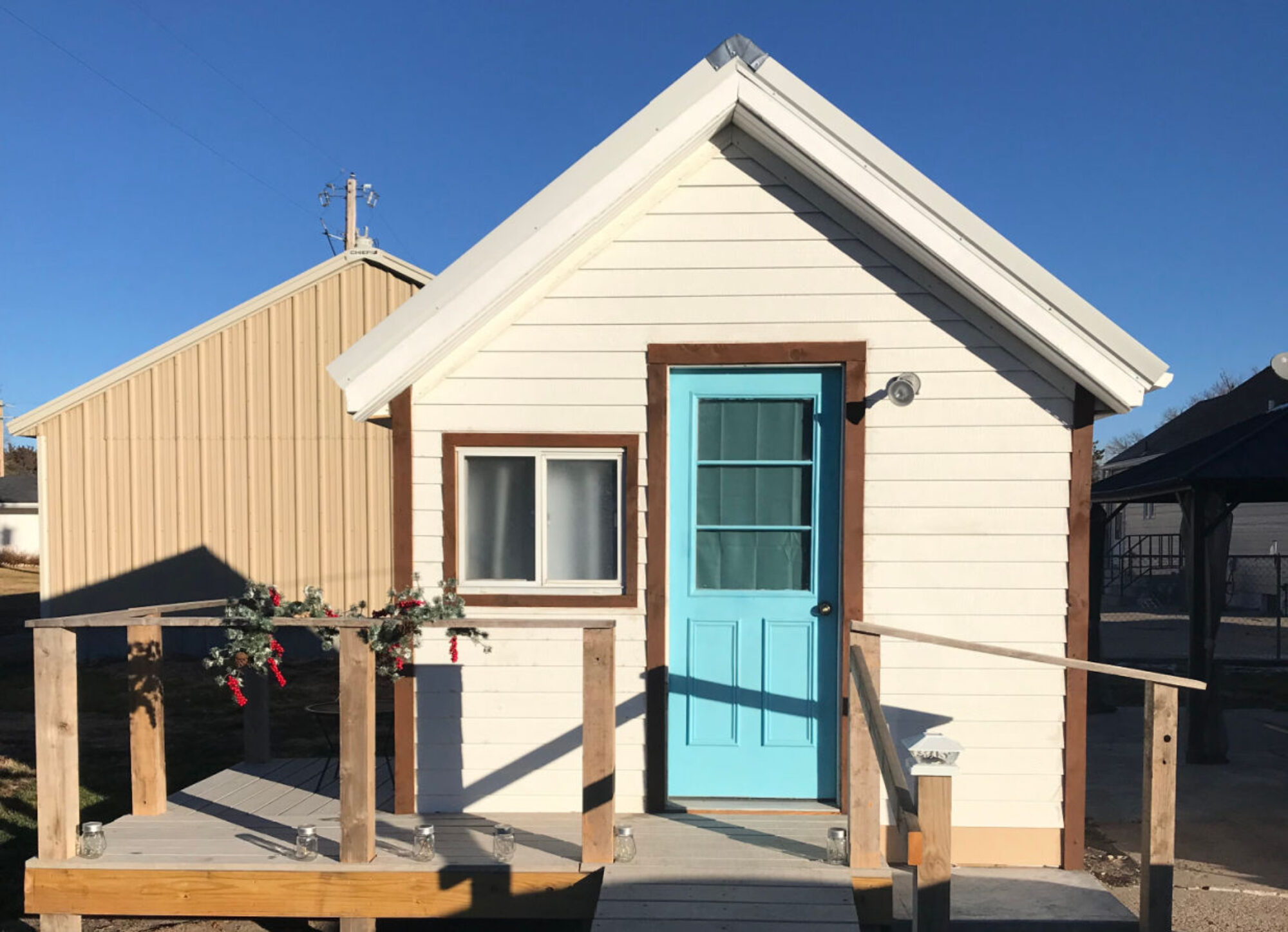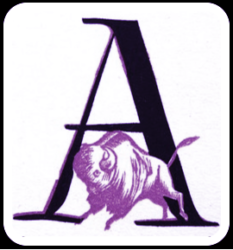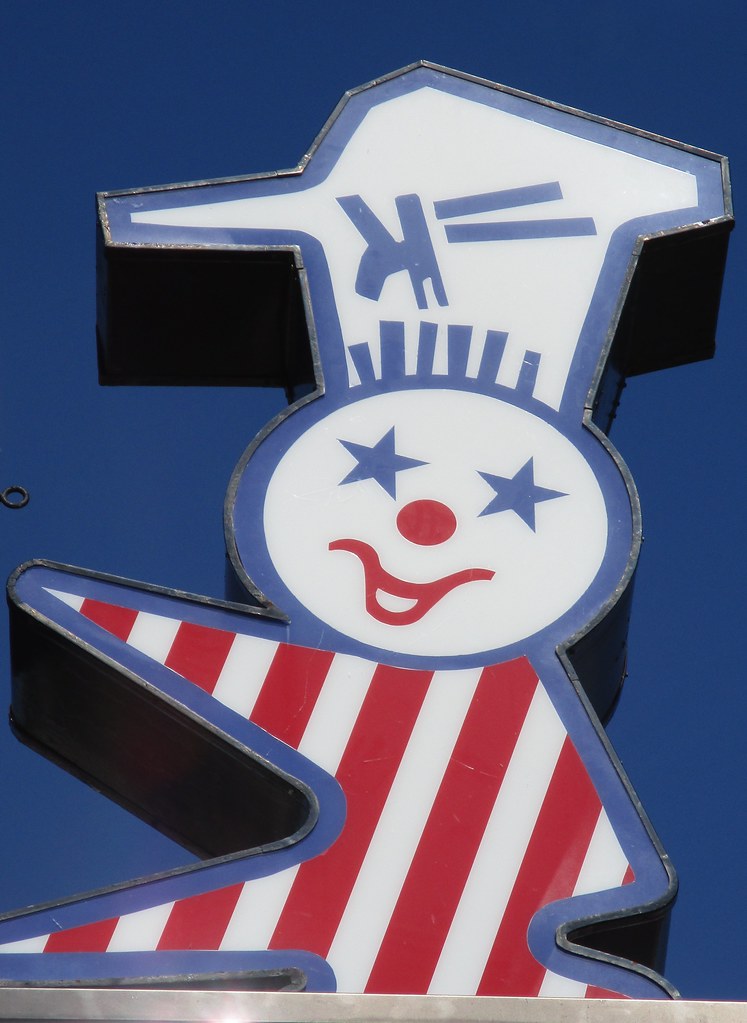One cool, wet summer day, a large cardboard box arrived on the front porch of my family’s two-story farmhouse. It was a repurposed refrigerator carton addressed to my father. It was neither wrapped nor taped, and the top of the box was unsealed and closed with the flaps alternating in the typical way one must close a box without tape. I say it was addressed to my father because the following legend appeared on one side: “To Dr. R. Atchison.” There was no form, but it was evident that the postal service had not made the delivery. Someone brought it directly to the porch and left it there.
I remember the box, but I had no curiosity about its contents. My father always received packages of all sizes, many of them from dental laboratories. The enormous box size was not exciting enough to stir me, and I barely noticed when it was no longer on the porch later that day.
Later that same afternoon, the storm clouds cleared, but the coolness remained. Early evening was festooned with a glorious golden light. After supper, I went out behind the milk house to sit in my brother’s inoperable 1956 Dodge sedan. I wanted to listen to the ball game on my transistor radio because the car battery was dead. I was an A’s fan, and they were playing the hated Yankees, so I was intent on the game but had a devil of a time tuning in the station. The storm was not far away, and the sound from the little box crackled. The station frequency moved along the dial, so I had to adjust the tuning dial constantly.
I remember pushing the dial too far in one direction, and I neither heard the voice of announcer Monte Moore nor the static of the interfering storm. During the crucial interval of silence, I heard what sounded like a bagpipe coming from behind the Dodge and inside the milk house. The roots of my closely cropped hair tingled. “What was that?” I breathed aloud. I snapped off the radio and sat in silence. The night was quiet except for the chirping of a few cicadas and the buzzing of an annoying June bug tumbling over the car’s hood. I listened, but no further sound was forthcoming. After a while, I turned on the radio again, but there was no sound. I turned up the volume but still no sound. My last battery was dead, so that was the end of the ball game. And that was the moment the bagpipe sounded again. “Who is doing that? I asked no one in particular. My family had a habit of needing to assign responsibility for all unpleasant phenomena. It made us feel better, but it had no practical application. “I bet Sean is trying to prank me.”
Until the fall he went to college, my number three brother was always playing practical jokes at my expense. He was nearly six years older than me and had ruined the glory of the first time my parents allowed me to stay at home alone. My parents had gone to the Leavenworth Officers’ Club for dinner and left me, sans older brothers, in charge of the house. Sean was spending the evening at the bowling alley with a couple of his friends and talked them into helping him scare the living daylights out of me. One of his buddies was an overgrown kid with a deep voice. Just after it became dark, the three friends parked their car next door, and two of them crept up to the door while the other took a side window. At a prearranged signal, they began beating on the window and sides of the house while the heavy boy bellowed, “Open up, or we’ll kill you!” I screamed and wet my clothes, so frightened that fluids escaped every orifice. I slid under my parents’ bed, and the miscreants entered the house with my brother’s key. They laughed and bantered about my stupidity so hard, and for so long, I became nauseated and felt constricted like someone with claustrophobia. I escaped to my room and shut the door, but their jolly voices seemed to shake the house until I fell asleep, completely exhausted.
Incidents like my first night alone made me vigilant about my brother’s malevolence. The eerie bagpipe sounds seemed linked to another of Sean’s nefarious plots. I slipped quietly out of the car, closing the door carefully without letting it latch. The entrance to the milkhouse was on the opposite side of the building. I determined to go inside before the twilight turned to complete darkness. I also planned an escape route through the back door of my home, through the kitchen and hallway, and up the stairs to my room.
I crept to the milkhouse door just as the streetlight illuminated the road. It was silent, with no traffic on the street, and it seemed even the nocturnal fauna fell silent. I slowly placed my hand on the door and jumped back. There was no noise; only a grasshopper or katydid had been sitting on the knob. Nevertheless, I had to pause to catch my breath. I started again. Slowly, I turned the handle. The interior of the milk house was dark already. Only the faint light behind me made it possible to see the assorted junk and boxes as ghostly shadows. I thought I would have to go to the house to get a flashlight, and just as I turned my back, I heard the awful wheezing, its volume magnified and coming from a large box just inside the door. I imagined it was something coming after me. I screamed and slammed the door behind me, but just as I did, there was enough light to see the writing on the box: “To Dr. R. Atchison.” It was the box that had been on the front porch earlier! How did it get into the milk house? It was large enough to hold a body or a skeleton. Had a ghost been brought into our outbuilding, or had some already present evil spirit possessed the skeleton? I cannot recall all the irrational threads running through my mind. Still, the ghost possibility seemed credible based on the unearthly groaning that suggested a creature in torment!
I ran in the house’s back door, intending to rush quickly to my bed and bury myself under the covers, when I heard a voice from the living room.
“Say, young man!”
It was my father. He was sitting on the sofa with a cardboard box full of files from the office. He often caught up on his paperwork at night.
“Hear, hear! What a business! Cut that out! You look like you’ve seen a ghost!”
“I did,” I said, and my voice trailed off as I instantly regretted this confession.
“Don’t you know there’s no such thing as ghosts? At least, that’s what they say.” His reading glasses had slid down his nose, and he had a pencil in his mouth. He was speaking to me while jotting notations on a chart.
“I just imagined something, Dad. But I was scared there for a minute.” I only now noticed I was shaking.
Now he put down the pencil and his glasses and looked at me. I looked back in silence and then got chatty.
“Hey, Dad, did you see that box on the front porch earlier? It was addressed to you.”
He smiled. “I did see it.”
“Did you do anything with it?”
“Let’s see. No. I asked your brother to put it away. It should be in the milk house.”
“Hey, Dad, can you tell me what’s in it?” I thought I was interrogating my father, but he was questioning me. He smirked the family smirk that often preceded a laugh at foolishness.
“Now, Liam, I want you to stay away from that box. I cannot tell you what is in it because it will only frighten you. I must confess it frightens me a little. So, well, unearthly.”
I felt my hair stand on end again. My dad was a dentist but also a man of science. I wanted to avoid imagining what he might keep around the place for study and experimentation. He already kept a skull in his office lab, right next to my favorite drawer with the bottles of mercury.
“I’ll stay away.”
“That’s my boy! Go in, say good night to your mother, and get ready for bed. And say! No coming downstairs tonight, and no sneaking outside through the window! All you need is to break your back falling off the roof!” Ugh! I hated how he could anticipate my boneheadedness.
So I went to bed. Before I dropped off to sleep, I looked out the window at the milk house and shuddered. I pulled the covers over my head.
Morning came. My first conscious thought was whether last night was a dream. Sean dispelled that thought when he stomped into my room.
“The rotten A’s lost again. They are worthless. And Dad wants to see you downstairs before he goes to work. My guess is you are in trouble. Were you fooling around in the milk house last night? Escaped convicts sometimes sleep in there, you know.”
I didn’t hear a thing he said after the word “trouble.” But my conscience was clear. I couldn’t think of anything I had done, but as the youngest, I was often blamed for things I didn’t do. I complained about this, but I never became bitter. I also did many things for which I never got caught. This is the deal in families of four boys.
I went downstairs quickly. When Dad was paying attention to me, I didn’t ignore his requests for my presence. I would dawdle the first time my mother called me. I wanted to gauge her seriousness by letting her call several times before I did what she wanted. But Dad was a different matter. I hopped down the stairs and found him sitting at the kitchen table singing, “Buckle Down, Winsocki.” He only sang two songs ever. The other was “All Hail the Power of Jesus’ Name.” I always wondered why he selected one or the other. He seemed limited in his moods and his choice of foods. This morning, he was dishing hot oatmeal into a bowl. Oatmeal was all he knew how to make. His singular presence in the kitchen usually meant my mother wasn’t feeling well.
He looked up and said, “Liam, my boy! Sit down and eat this. There’s some milk and molasses.” I didn’t like either of those things in my porridge, but I enjoyed how this interaction was starting. He was in a good mood.
“What?” He said, “No molasses? It’s one of the finer things in life.” Dad also said chicken backs and the fat cut from steaks were two finer things. He usually reserved this high praise for foods he knew his kids found disgusting.
“When you finish that, I want you to come outside with me for a few minutes” Uh-oh, this is what he usually said when he wanted me to come with him to the office for a fluoride treatment.
Despite the depressing thought of bitter fluids under my tongue, I quickly finished because he was watching me. He took my empty bowl and rinsed it out, wiped his hands on a dishcloth, and beckoned me to follow him outdoors. To my horror, he was leading me to the haunted milk house. He turned and smiled as he came to the door.
“Remember what I told you last night? Well, I changed my mind. I am going to show you what is in that box.”
He turned the knob, reached into the unlit room with his right hand, and slid the box out into the sunlight without entering the outbuilding. As he dragged the container into the open, the groaning sound of a sick bagpipe filled the air. His action surprised me, but I was no longer afraid of the box from that moment. I noticed it didn’t inspire the same fear in the clear morning sunlight.
“I bought this for Griff’s. I thought it would be interesting.” My dad was the co-owner of a fast-food hamburger joint that had been big in the 1960s. He and another man held the local franchise of Griff’s Burger Bar. In our part of the world, it competed with MacDonald’s and Smaks. Griff’s featured fifteen-cent hamburgers and an abstract-jigsaw-puzzle clown named Griffy, who was ubiquitous in their branding strategy.
Dad opened the top of the box and reached inside. The groaning resumed with greater intensity. Like a magician pulling a rabbit out of a hat, he pulled up a head by the hair! I almost fainted from fear. I thought I was right–dad had ordered a dead body. But I recognized the face!
It was Santa Claus!
As my father continued to lift the head, a body followed. It was clad in a baggy Santa suit with a coat, trousers, and boots all sewn together. The groaning sound persisted all through this process. When the Santa object was extracted from the box, Dad hugged it to his chest, squeezing all the air out of the jolly old elf. The embrace resulted in a sound that was more scream than groan.
“That sound is irritating,” my father said. “But under the suit is a life-size air bladder with its valve open. Still in the box is an electric air pump that attaches to the bladder. The pump goes off and on. When it’s on, Santa grows to his full height and puts his arms out wide, like this, see?”
My dad scrunched his head down and grabbed his knees. Slowly, he raised his torso and extended his arms until his body was shaped like a cross.
“I’ll bet you were scared by the sound of trapped air escaping occasionally. It sounds a little like bagpipes.” He smiled in an amused way.
I remember that I was relieved, but I had questions. “It’s just a big doll! But why Santa? Will you just put it up at Christmas?” I asked.
“Not exactly. See, Mrs. Gershowicz will sew a red-and-white-striped clown suit like Griffy wears. The beard comes off, and we’ll turn the face into Griffy’s with starry eyes, Rudolph’s nose, and a big smile. On top of his head will be a chef’s hat with his name embroidered on it. So it won’t be Santa anymore; it’ll be a big inflated Griffy doll.”
“Dad, where will you put it?”
“Outside under the car canopy. It’s too noisy to be in the lobby.”
“Dad, Santa is scary. Will Griffy be scary too?”
“N-no,” he began and then stopped. “Well, at least I hope not. The purpose is not to scare people. It’s to get people to think of Griffy and about coming to get hamburgers when they are reminded of him.”
I caught the doubt in my father’s voice. Was this really his idea? I thought he might need a little encouragement. “Dad, I’m scared of clowns–except Griffy. I don’t think kids will be afraid of him.”
My father laughed, “That’s good to know, Liam, my boy. Just tell your friends there’s nothing to be afraid of. I want Griff’s to be fun and give people a little happiness.”
About a month later, Santa was transformed into Griffy and installed outside the lobby where people ordered food in the days before drive-through windows. About a week or so after that, I again heard the wheezy sound of Griffy coming from the milk house.
He had scared me as Santa in the milk house. He apparently scared children–and adults–in his short tenure as a hamburger icon.





